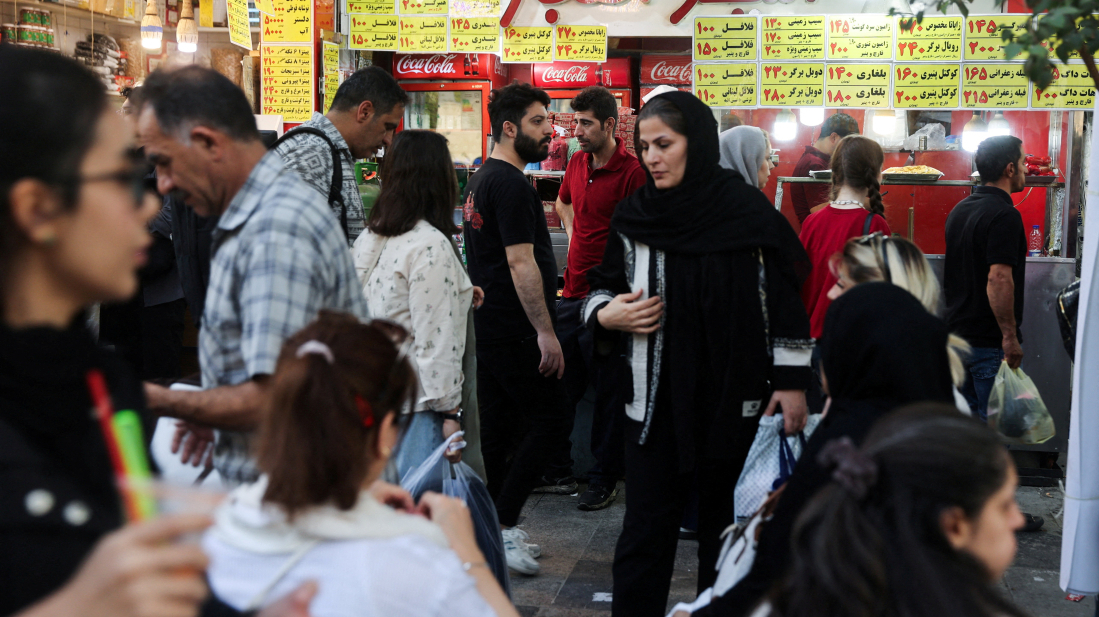Kyrgyzstan–Tajikistan trade triples in 2025 after border reopening
Trade turnover between Kyrgyzstan and Tajikistan reached $33.4m in 2025, almost three times higher than the previous year, according to data from Taji...

Iran's economy is at risk of simultaneous hyperinflation and severe recession, officials and analysts say, as clerical rulers scramble to preserve stability with limited room to manoeuvre after a snapback of UN sanctions.
They followed a breakdown in talks to curb Iran's disputed nuclear activity and its ballistic missile programme.
Diplomacy to resolve the deadlock remains possible, both sides say, though Iranian Supreme Leader Ayatollah Ali Khamenei has rebuffed U.S. President Donald Trump's offer to forge a new deal.
Three senior Iranian officials, speaking on condition of anonymity, said Tehran believes the U.S., its Western allies and Israel are intensifying sanctions to fuel unrest in Iran and jeopardise the very existence of the Islamic Republic.
Since the reimposition of UN sanctions on 28 September, multiple high-level meetings have been held in Tehran on how to avert economic collapse, circumvent sanctions and manage simmering public anger, the officials told Reuters.
Deepening economic disparities between ordinary Iranians and a privileged clerical and security elite, economic mismanagement, galloping inflation - reported even by state media - have fanned discontent.
But analysts warn that such workarounds may not be enough to shield the sprawling country of 92 million people from the renewed economic blow.
"The impact of the UN sanctions will be severe and multifaceted, deepening the country’s longstanding structural and financial vulnerabilities,” said Umud Shokri, an energy strategist and senior visiting fellow at George Mason University near Washington.
President Donald Trump said on Thursday that the United States has an "armada" heading toward Iran but hoped he would not have to use it, as he renewed warnings to Tehran against killing protesters or restarting its nuclear programme.
A commuter train collided with a construction crane in southeastern Spain on Thursday (22 January), injuring several passengers, days after a high-speed rail disaster in Andalusia killed at least 43 people.
Turkish President Recep Tayyip Erdoğan has told his Iranian counterpart Masoud Pezeshkian that Türkiye opposes any form of foreign intervention in Iran, as protests and economic pressures continue to fuel tensions in the Islamic republic.
The first day of trilateral talks between Ukraine, Russia and the U.S. ended in Abu Dhabi on Friday, with officials saying discussions were productive and would continue on Saturday.
In the snowy peaks of Davos, where the world’s most powerful leaders gather for the 56th World Economic Forum, a new narrative is emerging that challenges the current dominance of artificial intelligence (AI).
An international photography exhibition by world-renowned photojournalist Reza Deghati, known globally as REZA, is offering travellers a powerful visual introduction to Azerbaijan at Heydar Aliyev International Airport.
Trade turnover between Kyrgyzstan and Tajikistan reached $33.4m in 2025, almost three times higher than the previous year, according to data from Tajikistan’s Customs Service.
The Turkish Defence Ministry has called for the Syrian Democratic Forces (SDF)’s “unconditional compliance” with the 18 January ceasefire agreement between the Kurdish-led militant group and Damascus.
The claim that U.S. President Donald Trump's intervention stopped the execution of 800 detainees is "completely false", said prosecutor-general of Iran, Mohammad Movahedi on Friday (23 January). According to him, the number cited by Trump does not exist and the judiciary has made no such decision.
The United Nations nuclear watchdog must clarify its stance on U.S. and Israeli attacks on Iran's nuclear sites last June that lasted 12 days, before inspectors are allowed to visit those facilities, Iranian media on Friday quoted the country's atomic chief as saying.
You can download the AnewZ application from Play Store and the App Store.

What is your opinion on this topic?
Leave the first comment